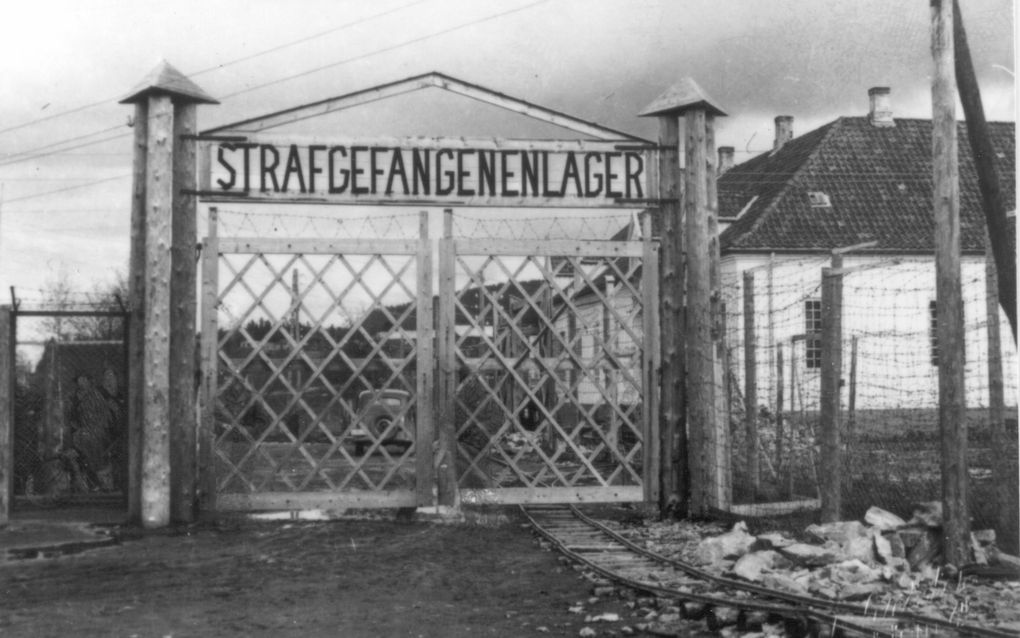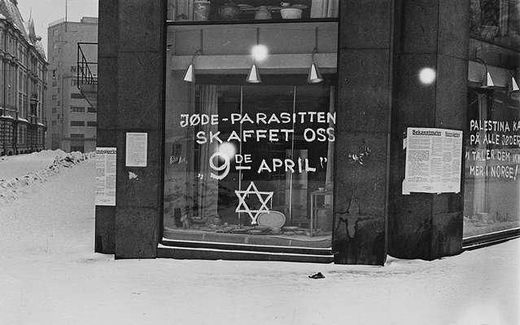Investigation into the role of the Norwegian Church in the war

During a state of emergency in Trøndelag from 6 October 1942, all male Jews were arrested by the Norwegian order police. They were interned in SS-Strafgefangenenlager Falstad outside Levanger . [106]
Northern Europe
Should the Norwegian Church apologise to Jews for their role in the war, 76 years after it ended? Several Norwegian historians think she should.
Let’s listen what was said before the war: There are no people on earth “who are as power-hungry as Jews are.” Anti-Semitism is not just an attack on Jews by other people but "the shadow that the Jews throw at themselves."
These statements came from the Norwegian theologian Gisle Johnson in the interwar period. Torleiv Austad highlighted them in an interview with the Christian Norwegian Daily Vårt Land. Austad is a retired professor at the MF Norwegian School of Theology, Religion and Society in Oslo and one of the theologians and historians studying the role of the Norwegian Church in the interwar period and during World War Two.
Historian and journalist Bjørn Westlie plans to publish a book next year about anti-Jewish attitudes in the Norwegian public, including the Christian grassroots, before World War II.
Westlie does not comment on his findings until the book is published. But in Vårt Land he confirms that he possesses material that shows clear anti-Jewish attitudes in religious organisations. "It is much worse than I thought, considering how close this was to the German occupation", says Westlie.
But not only before the war were there anti-Jewish sentiments in Norway. Only in 1942, two years into the occupation, churches started protesting against the arrest of Jews. A so-called Hebrew Letter was written to Prime Minister Vidkun Quisling and read in the churches in November 1942. The immediate cause was the arrest of Jewish men on October 26th, 1942. The title came from "The Letter to the Hebrews", a letter in the New Testament in which Christians stretch out a hand to the Jews.
Hebrew Letter
The Hebrew Letter was written by the temporary church leadership and received support from almost all Norwegian churches. However, the letter also raises several questions.
Torleiv Austad believes it is probable that the church leadership received warnings of an impending major action against Jews. However, they might not have known when or how this would happen.
That warning came in April, seven months before the deportation, and two months after the Wannsee Conference in Germany where the extermination of the Jews was further planned. It was repeated in September.
The warning did not cause the church to do anything directly. That is one of the surprises, says Austad. "Why did the Church of Norway remain passive for so long in the face of Nazi persecution of Jews?" he tells Vårt Land. “I think one must critically explain why the Church of Norway was so passive for so long.”
Liquidation
Earlier last week, historian Synne Corell released her new book 'Liquidation', in which she argues that preparations for the Norwegian Holocaust began earlier than expected.
The book also has passages that call for reflection on the role of the church in the Holocaust. On November 26th, 1942, the cargo ship SS Donau left the harbour of Oslo. Aboard were 532 Jewish prisoners. Germans took them to Auschwitz concentration camp. In total, only nine of the prisoners on the ship survived the war.
Six days before the SS Donau left Oslo, the Norwegian News Agency NTB published "Away with the Jews". The article consisted of a condensed excerpt from a 500-year-old text by Martin Luther that asked, "What shall we do with this wicked people? It is unbearable as they live with us, and we know their lies and vices (...)”. And further urged: "burn their synagogues and what will not burn up".

This article was propaganda from the Norwegian far-right party NS, written by the Nazi press agency. However, later in that year, just before Christmas, the exile government's information office newspaper Norsk Tidend printed the text "One Saviour" all over the front page, illustrated with a photograph of Nidaros Cathedral in Trondheim.
This article was a Christmas sermon that revolved around Jesus and the Norwegian people's trials during the occupation. The author was Olav Martin Leirvåg, a priest for the Norwegian Navy and Air Force in England. In a passage that looked back at Jesus where he hung on the cross, Leirvåg wrote: "In the shadow of the cross, Roman soldiers are finished with four nails and a hammer, scouring Jewish quislings further back. Our people see it and smile quietly: "Behold, he has come to lead us, the Saviour!"
"The traditional, Christian narrative was so strong that the Jews' most important significance in the Christmas sermon of 1942 was still that they failed Jesus, just as Quisling and his supporters now failed the Norwegian population," Corell comments in the book.
Settlement
Now, 76 years after the occupation, the Norwegian Church seems to look deeper into the matter. In September, a new church commission had its first meeting. Although the commission's goal is to provide "theological and practical perspectives on the Church of Norway's relationship to Judaism and Jews today", committee leader Endre Fyllingsnes says that the relationship between the Church and the Jews before and during World War II is definitely on the agenda. "Our mission is to contribute to a self-critical reflection on the role of the Church of Norway. What happened before, during, but also after the occupation is something we want to look at", says Fyllingsnes to Vårt Land.

Whether the commission's work will eventually take the form of an apology is too early to say. "But I do not think I am anticipating anything when I say that we will make assessments that are so critical of the church's tradition that it ideally means a settlement", says Jostein Ådna, who is a professor at VID University College.
Netherlands
In the Netherlands, the question as to whether churches should apologise for their role in the war is also discussed.
In October 2020, the Protestant Church in the Netherlands pleaded guilty to the Jewish community. She did not apologise, "because that is not an ecclesiastical word", according to Secretary-General René de Reuver. "Guilt is the deepest word you can use for failure," said De Reuver to Dutch daily Trouw. "We do not distance ourselves from the past, but we take responsibility and acknowledge our mistakes."




